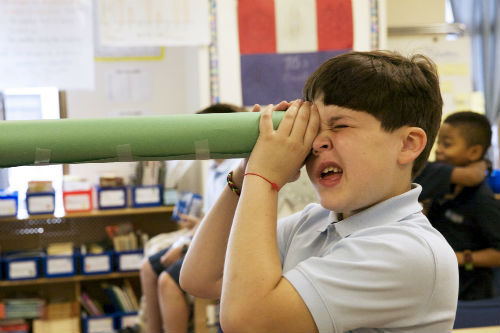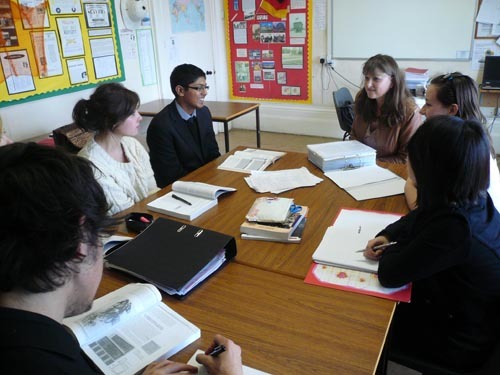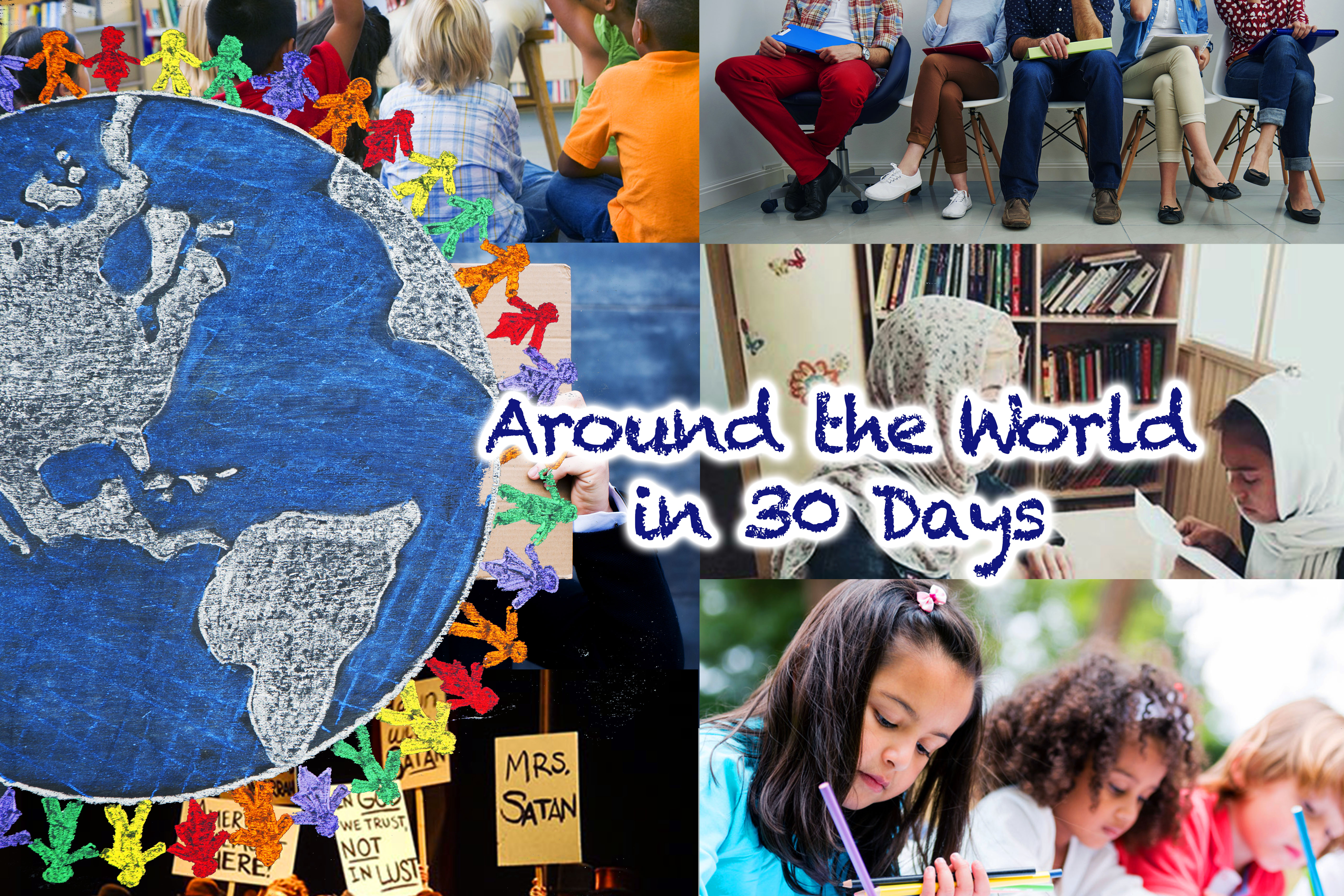C. M. Rapport Global Education de Rubin
En Mai, I continued my conversations with thought leaders from China to New York who sketched out for me the conflicting overlaps between creativity, innovation, réforme, and testing, and shared their efforts to create coalescence between them. En attendant, my Top 12 Global Teacher Bloggers contributed some much-needed tips on one of the hottest topics for this time of the school calendar year, i.e. combating stress in the classroom.
According to the International Labor Organization, an agency of the UN, global unemployment stood at 201 million people in 2014, 1.2 million higher than in 2013, and that number is expected to rise to 212 million by 2019. The current worldwide unemployment rate among 15 à 24 year-olds of 13%, which is also expected to increase, is almost 3 times higher than the overall unemployment rate. A mismatch of skills is believed to be a major factor.
“How do we best prepare students for the dramatic socio-economic demands of a digital world in a global age?” In the hope of finding answers to this question, I helped organize the Oppi Festival at Leman High School in New York City. Full of innovation and debate, the festival’s timely themes of Gender: It Matters, Global Collaboration, and Living: Les Arts, allowed all its world-renowned participants to reflect deeply in a down-to-earth atmosphere on the future of learning. I sincerely hope there will be many more festivals like Oppi in cities all over the world. As to my question about preparing young people for the future, I greatly enjoyed the many perspectives shared, but especially the one from Andy Hargreaves: “by developing values that reconnect effort with reward; by creating the social capital of citizenship as well as the individual capital of entrepreneurship; and by making play and creativity the entitlement of all children.”
From Shanghai, I had the pleasure of meeting with Xu Jinjie, (Lecturer at Shanghai Normal University) and Zhu Xiaohu (PHD Candidate Assistant Professor – Institute for Basic Education Research, Académie des sciences de l'éducation de Shanghai) to discuss some of the ways China is combining the best of tradition with innovation. Since Shanghai was top of the charts on the PISA 2009 exam, it has been a worldwide destination for educators. Although exams are deeply rooted in their culture, they are opening up to reform and creativity: “We want to let students have time to explore their own interests and to make their own choices in learning, and so we give them chances to do that.” Zhu Xiaohu comments. Zhu discussed a pilot for a new student achievement assessment, which will be more about producing student portfolios.
On route to the Education Fast Forward 13 Conference in Norway, it was also a great pleasure to connect with writer and teacher Howard Rheingold, a true Internet pioneer, who coined the term “communautés virtuelles” in the 1980s. His long history with the web means that he has some amazing context to provide to the problems of the present, a time in which “anybody can ask any question anywhere and get thousands of answers within seconds.” Cependant, Howard warns, that this information era requires that we do a lot of extra thinking work to process what information is good and bad. It requires the development of a skill he calls: “crap detection.” “Le manque de contrôle de la qualité de l'information met le fardeau sur le consommateur de l'information. Mais les pièges et les distractions ne sont pas les aspects de la technologie tant qu'ils sont des aspects de savoir-faire — il est une crise de l'alphabétisation, pas tout à fait une crise de la technologie.”
Enfin et surtout – in light of the new AFT and Badass Teachers study of US teachers, i.e. la Quality of Work Life Survey, Je demandai à mon Top Bloggers mondiaux enseignants, “What are the quick ways to combat teacher stress in a classroom?” The answers included short-term solutions to put the teacher at ease, including taking breaks, exercising, and celebrating success, and teacher Craig Kemp’s suggestion that one cultivate a sense of humor. Richard Wells, d'autre part, recommended long-term strategies, such as fostering a learning environment that encourages confident students. He gives some helpful ways to approach this including setting manageable personal goals for each student.

Rejoignez-moi et leaders d'opinion de renommée mondiale dont Sir Michael Barber (Royaume-Uni), Dr. Michael Bloquer (États-Unis), Dr. Leon Botstein (États-Unis), Professeur Clay Christensen (États-Unis), Dr. Linda Darling-Hammond (États-Unis), Dr. MadhavChavan (Inde), Le professeur Michael Fullan (Canada), Professeur Howard Gardner (États-Unis), Professeur Andy Hargreaves (États-Unis), Professeur Yvonne Hellman (Pays-Bas), Professeur Kristin Helstad (Norvège), Jean Hendrickson (États-Unis), Professeur Rose Hipkins (Nouvelle-Zélande), Professeur Cornelia Hoogland (Canada), Honorable Jeff Johnson (Canada), Mme. Chantal Kaufmann (Belgique), Dr. EijaKauppinen (Finlande), Le secrétaire d'Etat TapioKosunen (Finlande), Professor Dominique Lafontaine (Belgique), Professeur Hugh Lauder (Royaume-Uni), Seigneur Ken Macdonald (Royaume-Uni), Professeur Geoff Masters (Australie), Professeur Barry McGaw (Australie), Shiv Nadar (Inde), Professeur R. Natarajan (Inde), Dr. PAK NG (Singapour), Dr. Denise Pape (États-Unis), Sridhar Rajagopalan (Inde), Dr. Diane Ravitch (États-Unis), Richard Wilson Riley (États-Unis), Sir Ken Robinson (Royaume-Uni), Professeur Pasi Sahlberg (Finlande), Professeur Manabu Sato (Japon), Andreas Schleicher (PISA, OCDE), Dr. Anthony Seldon (Royaume-Uni), Dr. David Shaffer (États-Unis), Dr. Kirsten immersive, (Norvège), Chancelier Stephen Spahn (États-Unis), Yves Thézé (LyceeFrancais États-Unis), Professeur Charles Ungerleider (Canada), Professeur Tony Wagner (États-Unis), Sir David Watson (Royaume-Uni), Professeur Dylan Wiliam (Royaume-Uni), Dr. Mark Wormald (Royaume-Uni), Professeur Theo Wubbels (Pays-Bas), Professeur Michael Young (Royaume-Uni), et le professeur Zhang Minxuan (Chine) alors qu'ils explorent les grandes questions d'éducation de l'image que toutes les nations doivent faire face aujourd'hui.
La recherche globale pour l'éducation communautaire page
C. M. Rubin est l'auteur de deux séries en ligne largement lecture pour lequel elle a reçu une 2011 Upton Sinclair prix, “La recherche globale pour l'éducation” et “Comment allons-nous savoir?” Elle est également l'auteur de trois livres à succès, Y compris The Real Alice au pays des merveilles, est l'éditeur de CMRubinWorld, et est une fondation perturbateurs Fellow.
Suivez C. M. Rubin sur Twitter: www.twitter.com/@cmrubinworld






Commentaires récents